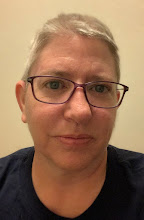More thoughts on Arun Gandhi:
Gandhi spoke a great deal on his grandfather's philosophy of nonviolence. And I found myself nodding right along with what he said. It coincides so much with what I have been reading lately. But there were some new things I managed to glean from what he said, too.
He spoke about avoiding physical violence, obviously, but he also spoke about passive violence. Having negative thoughts, speaking negatively about others, acting negatively are all forms of passive violence. And passive violence leads to physical violence.
And passive violence comes in forms you might not have thought of.
Arun Gandhi told a story about how one day he realized the pencil he was using for his studies his grandfather was having him do was getting short. It was still usable, but he wanted a newer pencil, so Arun just simply threw the pencil away while outside, then went to ask his grandfather for a new pencil.
Instead of just giving him one, Gandhi began asking him a lot of questions: What happened to the pencil he had? How short was it? Could he still use it? Instead of a pencil, young Arun got a flashlight and was ordered to find the pencil he threw away and use it until it was no more. He said it took him about two hours to find the pencil in the dark, and when he did, he took it to his grandfather.
Gandhi then explained to Arun that things like pencils, or our food or clothing, come from Earth's natural resources, and to waste them — as Arun did by throwing away a pencil he could still use — is violence against nature.
Additionally, as people of some means who could afford such things, to simply throw away usable items or uneaten food is taking them away from the less fortunate, and that is violence against humanity.
"Passive violence fuels the fire of physical violence," Arun said. So we should do what we can to not create violence in the first place, and also learn to channel our anger so that it leads to positive action instead of physical violence.
He told another story from his 18 months living in India with his grandfather.
Gandhi had many programs going on to help create freedom from India's caste system, suffrage for women, helping the poor, etc. These needed to be funded. Hundreds of people came every day for the interfaith prayer sessions Gandhi would conduct, and many wanted his autograph. So, to help fund his programs, he would charge people for his autograph.
Part of Arun's duties was to collect the autograph books, papers, etc. that people wanted signed, along with the fee. Arun thought to himself that he wanted his grandfather's autograph. But he didn't think he should have to pay for it. So one day, he snuck his own autograph book into the stack, but did not include any money.
When Gandhi came across that book while signing autographs for that day, he stopped and asked why there was no money with it. Arun spoke up that it was his, and that because he was family, he should not have to pay. His grandfather said no, that he would not get any special treatment and had to pay. Arun vowed he would get his grandfather's autograph somehow without paying for it. His grandfather said he would not.
Mohatma Gandhi would often have meetings with important political leaders at his home, and Arun though this would be a way to get his grandfather's autograph. He would walk into the meetings, and demand — in front of all these dignitaries — that his grandfather give him his autograph for free. Gandhi would merely put a hand over Arun's mouth, and with his other hand hold Arun's head against his chest and continue the meeting. He never — during the meetings or after — expressed any anger at Arun for the interruptions. Even when the visitors objected to having the boy interrupt the meetings and then Gandhi holding him quiet, Gandhi would simply explain that this was just a joke between he and his grandson and go on with the meeting.
If we can learn to control our anger half as much as Gandhi did, Arun said, it would do much to decrease violence in the world.
(Arun Gandhi said he never did get his grandfather's autograph, by the way.)
The thing we need to ask ourselves about our own actions, Arun said, is "If someone were to do this to me, would it hurt me or help me?"
I would add, that if the answer is it would hurt you (make you angry), then you need to examine why are you doing it, then. (And when I say "you," I'm not meaning any one specific. I mean myself as well. It's just easier to say "you." So if that makes you angry, channel it, dude).
If you say abusive things like someone is stupid, why? Why do you say negative things about how people dress, how they have their hair or if they have tattoos?
If someone's beliefs about religion or politics or social issues are different from yours, do you direct derogatory remarks at them? What does that do for you? Does it make you feel better about yourself? Why? What are your insecurities about yourself that you think tearing other people down will make you superior to them?
At the heart, we are all the same, all part of the same energy of the universe. When you put that kind of negative energy out in the universe, it doesn't come back to just you. It's felt by all. "Passive violence fuels the fire of physical violence."
Next post, maybe some thoughts on controlling your mind to channel that anger.
Monday, November 21, 2011
Subscribe to:
Post Comments (Atom)


No comments:
Post a Comment